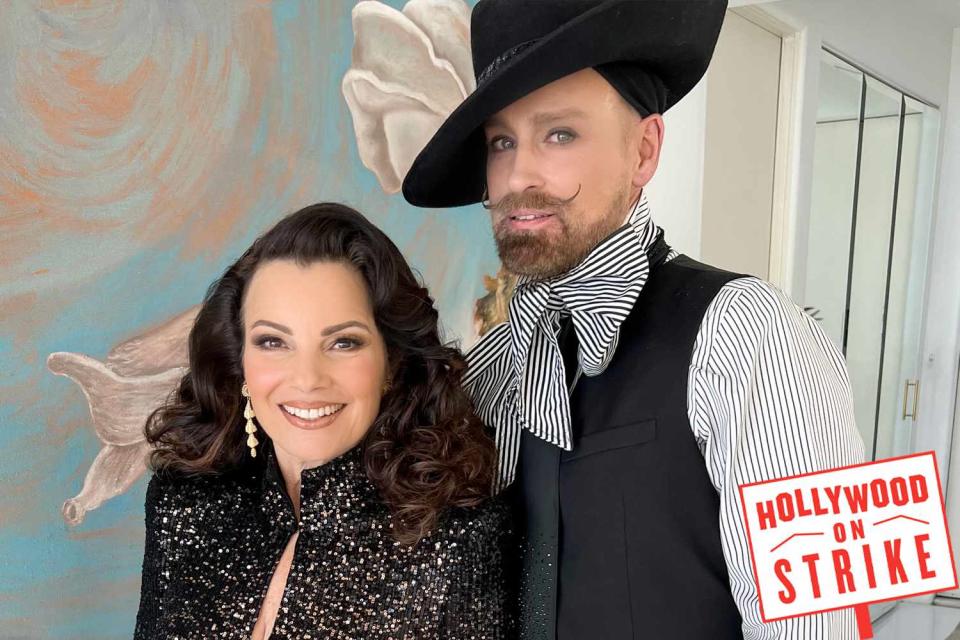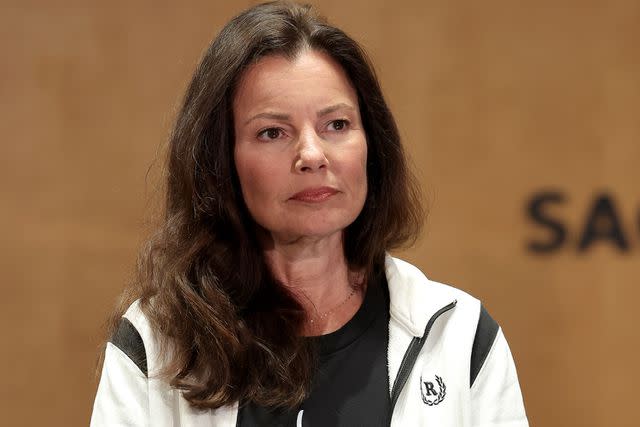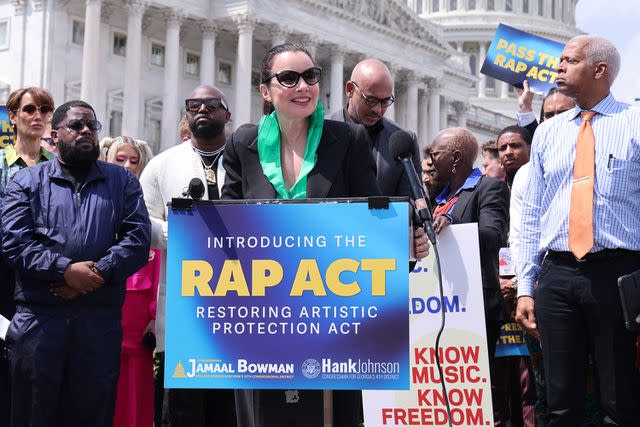Fran Drescher's Hair Stylist Says Studios Proposed Paying Extras to Do Own Hair: 'Trying to Do Away with Our Jobs'
- Oops!Something went wrong.Please try again later.
Hair stylists are among those fighting for their livelihoods as writers and actors strike for more equitable contracts. ‘We all share her rage,’ says Jon Lieckfelt of Fran Drescher

Peter Marc Jacobson
As Fran Drescher’s longtime hair stylist, Jon Lieckfelt wasn’t surprised when her impassioned speech made international headlines declaring the Screen Actors Guild strike last week.
“That was authentic Fran,” he tells PEOPLE of the SAG-AFTRA president. “That’s the Fran that a lot of people don’t get to see. They see the charismatic, big-voice character Fran a lot, but that’s her real ‘I mean business’-mode. And she was very angry and impassioned about everything that’s happening with labor. It’s a really dangerous time that we’re in.”
Following the Writers Guild of America strike begun 77 days ago, Thursday’s historic actors strike effectively shut down Hollywood for what could be months.
That leaves thousands of craftspeople in limbo like Lieckfelt, who has worked as a hair stylist on feature films (like Oz the Great and Powerful), TV shows (including Drescher’s 2020 NBC sitcom Indebted) and red carpet events (Minnie Driver is also his client), all of which actors are no longer able to participate in during the strike.
Hair stylists can earn an average of $35/hour on film and TV sets, and a day rate for red carpet events can net $750-$2,000 (with agencies generally taking a 15% fee).

John Salangsang/Shutterstock
“I had a lot of jobs waiting for the decision of whether or not there would be a strike. Had they reached negotiations I would have made thousands of dollars this week. Rather than making thousands of dollars, I’m making none,” says the veteran stylist. “And so my entire industry is shut down, unless we're booked on jobs involving the music industry, or reality television.”
Related: Who Is Fran Drescher and How Did She Become SAG-AFTRA President? All About 'The Nanny' Star
But Lieckfelt says he and his peers stand in solidarity with the terms actors and writers are fighting for. “Our mood is exactly the mood when you saw Fran speak. We all share her rage and anger towards the big corporate mindsets.”
The threat looms for stylists, too, he says, noting that in recent SAG-AFTRA negotiation proposals, studios proposed offering extras and stand-ins a 17% pay increase if they arrive on set “camera ready” — with their hair and makeup already done. (The standard pay for an eight-hour union background job starts at $187.)
With a majority of sets employing between six and 50 stylists, that’s “taking us out of the mix altogether,” says Lieckfelt. “Which is a huge deal. You see what’s happening — slowly the greedy money people are trying to do away with our jobs.”
He’s equally worried about the threat of artificial intelligence taking over “even wardrobe, or special effects makeup, which is a huge specialty. If there aren’t laws created around AI you’re going to see an entire industry crumble, a lot of jobs lost.”

Paul Morigi/Getty
With talks between the unions and studios at a standstill, movies from Deadpool 3 to the Gladiator sequel have shut down, and lucrative events like September’s Emmys and the fall film festivals (all packed with styling jobs) are in jeopardy.
It leaves stylists like Lieckfelt, who often hops from 16-hour days on sets to quicker-turn red carpet-glam (for which he’ll often spend days studying a celebrity’s brand or prepping vintage hair pieces), with idle hands.
He is currently offsetting his losses by seeing some private cut and color clients, including a recent two-week stint of salon time in his hometown of Detroit. “I did take a handful of clients while I was there, and that was helpful,” he says. But in general he says there was no way to prepare for an indefinite work stoppage.
“Like so many people, I didn’t expect to be in this situation,” he says. “I knew the potential for striking was there, but there’s no real way to prepare for it. (But) I think when you're an artist, you get very used to being creative with how you make your money, and how you pay your bills. And so you get very resourceful if you have to be.”
For more People news, make sure to sign up for our newsletter!
Read the original article on People.

